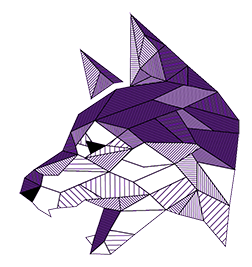Core Courses

Introduction to Synthetic Biology (Fall)
(BIOEN 423/523, CHEME 476/576, CSE 486/586, EE423/523, MOLENG 525)
This course is an introduction to the theory and practice of building artificial biochemical reaction networks and devices. Presently artificial biochemical devices and circuits are difficult to design, behave unpredictably, and are difficult to analyze; however new tools and approaches are emerging rapidly and promise to make engineering living systems and components broadly useful. Many of these emerging tools are based on tools in computer science (digital logic, automata theory) and electrical engineering (circuit theory, feedback control, signal processing, dynamical systems). Concepts from synthetic biology have applications in cell and tissue engineering, gene therapy, biologically derived drugs and materials, alternative fuels, biosensors, and much more.
Laboratory Methods in Synthetic Biology (Winter)
(BIOEN 424, CHEME 478, CSE 487, EE424)
This course is an introduction to the theory and practice of building artificial biochemical reaction networks and devices. BioCircuits have applications in cell and tissue engineering, gene therapy, biologically derived drugs and materials, alternative fuels, biosensors, and much more. Presently artificial biochemical devices and circuits are difficult to design, behave unpredictably, and are difficult to analyze; however new tools and approaches are emerging rapidly and promise to make engineering living systems and components broadly useful. Many of these emerging tools are based on tools in computer science (digital logic, automata theory) and electrical engineering (circuit theory, feedback control, signal processing, dynamical systems). The course is open to all engineering students and does not assume any background in biology or chemistry. It will consist of a lecture and a lab. The lab will consist of about six hours a week in the lab (EE B031) and 3 hours working on lab reports and data analysis.
Advanced Synthetic Biology for Applications (Spring)
(BIOEN 425/525, CHEME 477/577, CSE 488/588, EE425/525)
Explores approaches for modeling and designing systems-level functions in microbes and mammalian cells to solve real-world problems. Teaches computational simulation, coarse-grained mechanistic modeling, and global sensitivity analysis. Quarter-long projects will model and design new systems to produce renewable chemicals and fuels, materials for global health, and to develop cell- and tissue-based therapies.
Opportunities for Undergraduates
iGEM, International Genetically Engineered Machine, is an international competition in synthetic biology among undergraduate students. To learn more or join the UW team visit their website.
Opportunities for Graduate Students
Ph.D. students join Center for Synthetic Biology research groups through admission to the home departments of our faculty. Please see department website for information about admissions to our programs.
- UW Chemical Engineering
- UW Bioengineering Ph.D. admissions
- UW Molecular Engineering
- Genome Sciences
- Biology
- Chemistry
- Electrical and Computer Engineering
- Computer Science Engineering
- Molecular & Cellular Biology Graduate Program
